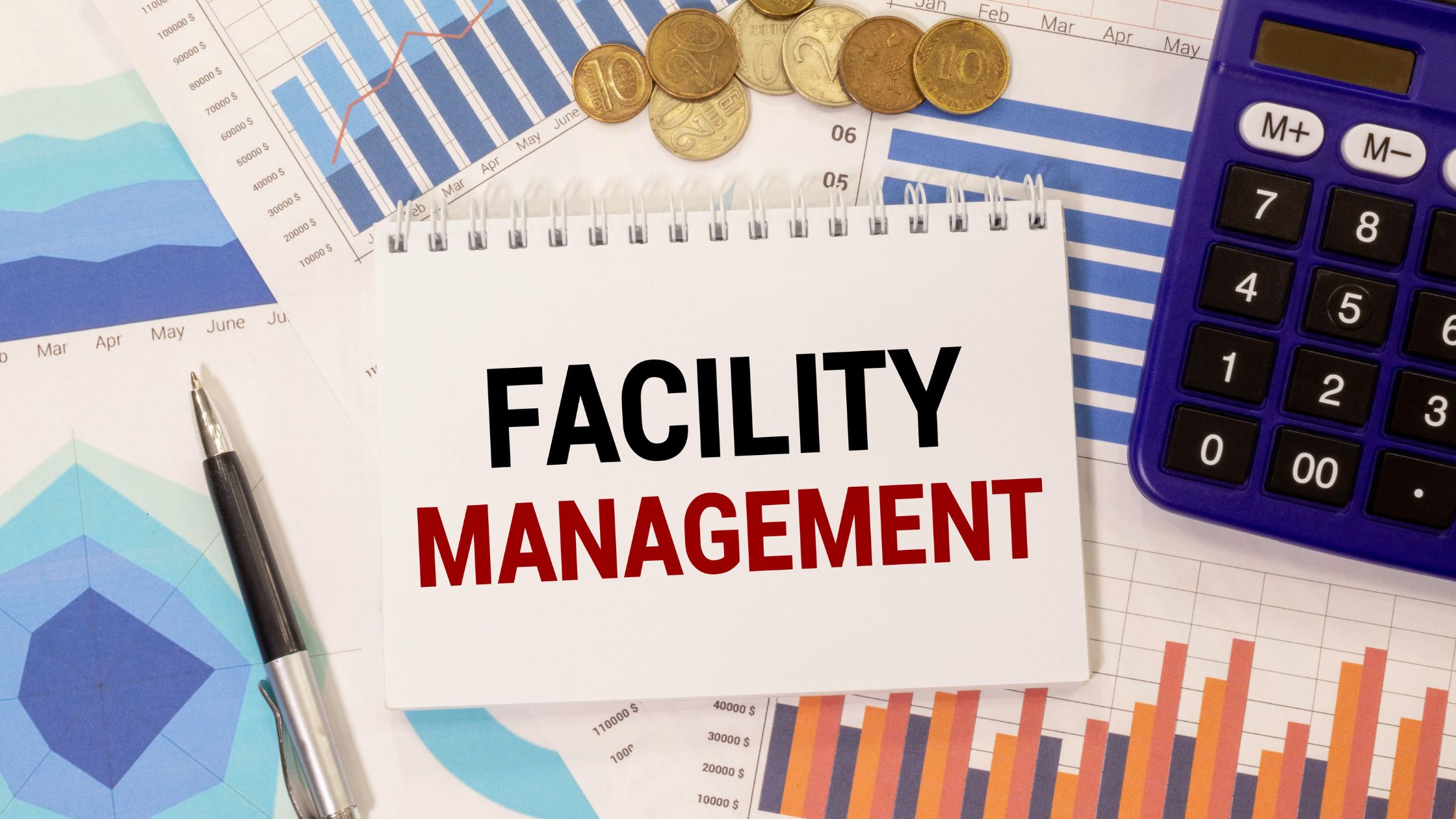
Posted By admin
 Nov 22, 2024
Nov 22, 2024 01:30:02pm
01:30:02pm Let’s see how a Facility Management Solution can transform the way you manage your real estate operations.
You manage a building with both apartments and offices. Every day, you’re running around solving tenant issues, organizing repairs, and keeping track of paperwork—all at the same time.
Then, one day, the air conditioning in the lobby breaks down. It’s a hot day, and both the residents and businesses are frustrated. The maintenance team is on it, but they’re struggling to figure out what’s wrong. Meanwhile, you’re trying to keep everyone updated, answer questions, and stay on top of everything else. It’s all happening at once, and it feels overwhelming.
Wouldn’t it be nice if you had a simpler way to handle this? Maybe a Facility Management Solution that lets you track everything in one place, automatically schedules maintenance, and helps catch issues before they get out of hand?
Does this sound familiar? How often do small problems turn into bigger ones, costing you time, money, and a lot of stress?
According to Fortune Business Insights, the global facility management market size is projected to grow from USD 1,315.7 billion in 2024 to USD 2,284.8 billion by 2032, exhibiting a CAGR of 8.2%.
Managing a property means constantly balancing multiple tasks. One day, you’re dealing with a broken elevator, and the next, you’re responding to a tenant’s maintenance request. Everything needs your attention at once, but without a clear system, it’s easy to feel lost.
For example, think of a property manager handling a residential building. A tenant reports a leaking faucet, while a small café needs a plumbing fix before rush hour. Without the right tools, it’s hard to track these issues and prioritize them efficiently.
This is where a Facility Management Solution can help. It organizes all your tasks, making it easier to track maintenance requests and stay on top of everything. As you think about adopting a Facility Management Solution, ask yourself the following questions to guide you toward the right choice.

The real estate and construction sector held a significant 35.6% market share in 2020, highlighting the growing importance of facility management in this industry.
As you consider a Facility Management Solution, think about the challenges you face day-to-day and what solutions you truly need.
When managing a property, it’s easy to feel like everything is happening at once. Many property managers deal with issues like high maintenance costs, trouble keeping track of repairs, and missing requests from tenants.
For example, a property manager handling both apartments and retail spaces found it difficult to manage the different types of maintenance requests. One tenant complained about a broken door lock, while another needed plumbing repairs, and there was a heating issue in one of the shops. Without a clear system, it was hard to prioritize tasks, leading to delays and frustration for tenants.
By switching to a Facility Management Solution, they were able to organize and track all the requests in one place, prioritizing urgent tasks and handling others as needed. This made the whole process smoother and improved tenant satisfaction.
A good facility management solution should have the features that matter most for your property. Here are some key features to consider:

Not every facility management solution works for every business. Make sure the solution you choose fits your current needs and can grow with your property portfolio.
For example, a small property management solution company with just a few properties started using a basic FM solution. As their business expanded, they needed a system that could handle more buildings and complex requirements. They chose a scalable solution that could grow with them, avoiding the need to buy new software every few years.
Think about the tools you’re already using. Will the new solution work well with your current systems?
A building management team was using one software for managing finances and another for handling maintenance requests. This created confusion because the data between the two systems wasn’t synchronized, requiring staff to manually input information into both, which often led to errors or discrepancies.
Additionally, without a single platform to view everything, the team spent valuable time switching between systems to get a complete picture of the building’s operations. As a result, tasks were duplicated, and critical information was sometimes overlooked. After adopting a new Facility Management Solution, they were able to combine both functions into one system, reducing the effort required to manage both. ge both.
A complicated system can slow down operations and lead to mistakes.
For example, a property management team struggled with software that required different processes for handling tenant requests and maintenance tasks. This complexity led to longer training times and confusion among the staff. After switching to a more intuitive FM solution, the team was able to manage all maintenance requests, track work orders, and schedule repairs within a single, easy-to-use system, improving efficiency and reducing errors.
The right FM solution can save you a lot of time by automating tasks and making your job easier.
For instance, a property manager in charge of a mixed-use complex used to spend hours each week managing maintenance schedules manually. After using a facility management solution, the system automatically assigned tasks and sent reminders, which freed up their time to focus on other important tasks like tenant relationships. Now that you have a clearer idea of the key features and challenges to consider, let’s explore the different types of Facility Management Solutions available, so you can choose the one that best fits your needs.
Here are the main types to think about:
A) Computer-Aided Facility Management (CAFM)
CAFM helps with the technical side of things, like keeping track of maintenance, planning space, and managing assets. If you run a building with lots of units, like an apartment complex, this software will help you stay organized. You can schedule repairs, track which units need fixing, and make sure everything is working as it should.
B) Integrated Workplace Management Systems (IWMS)
It handles everything from managing office spaces to maintenance and tenant issues. If you have both offices and apartments in the same building, this is a good choice. It lets you keep track of leases, handle repairs, and manage your entire property all in one place.
C) Enterprise Asset Management (EAM)
EAM is all about looking after your property’s assets—things like air conditioners, heating systems, and elevators. It tracks when equipment needs maintenance, how old it is, and when it might need replacing. For example, if you run a hotel, EAM can help you stay on top of when to service or replace air conditioning units before they break down.
D) Building Management Systems (BMS)
BMS focuses on making sure the building itself runs smoothly. It manages things like lighting, temperature, and security systems. If you manage a commercial building, BMS can automate lights and air conditioning, and even keep an eye on the security system, so everything runs efficiently without you having to keep an eye on it all day. Each type of solution has its strengths, and the right one for you depends on your property’s needs.
Once you’ve decided on the type of FM solution that fits your property’s needs, the next step is to identify the right vendor. Let’s take a look at the key factors to consider when choosing a vendor.

When selecting a facility management solution, choosing the right vendor is just as important as selecting the solution itself. The right vendor will not only ensure the software works for your property’s needs but will also provide ongoing support whenever issues arise.
As you evaluate vendors, ask yourself these key questions:
Once you’ve narrowed down your vendor options, it’s important to evaluate them carefully. Here’s a quick checklist to help you rank potential solutions based on the most important factors:
For example, a property manager managing a mixed-use building found that using this decision matrix helped them narrow down their choices, ultimately leading to a solution that reduced downtime by 30%. With this approach, you can ensure you’re selecting a system that truly meets your needs.
As you evaluate your options and weigh the pros and cons, it’s important to choose a solution that’s not only tailored to your specific needs but also reliable and flexible enough to grow with your business. This is where Property-xRM steps in. With its comprehensive facilities management tools, Property-xRM, powered by Microsft Dynamics 365, helps streamline operations, automate maintenance schedules, and ensure that your property is always running smoothly. It’s designed to tackle the unique challenges of property management, offering real-time updates and easy integration with your existing systems.
Ready to simplify your facility management and boost efficiency? Contact us today to learn how Property-xRM can transform the way you manage your properties.


